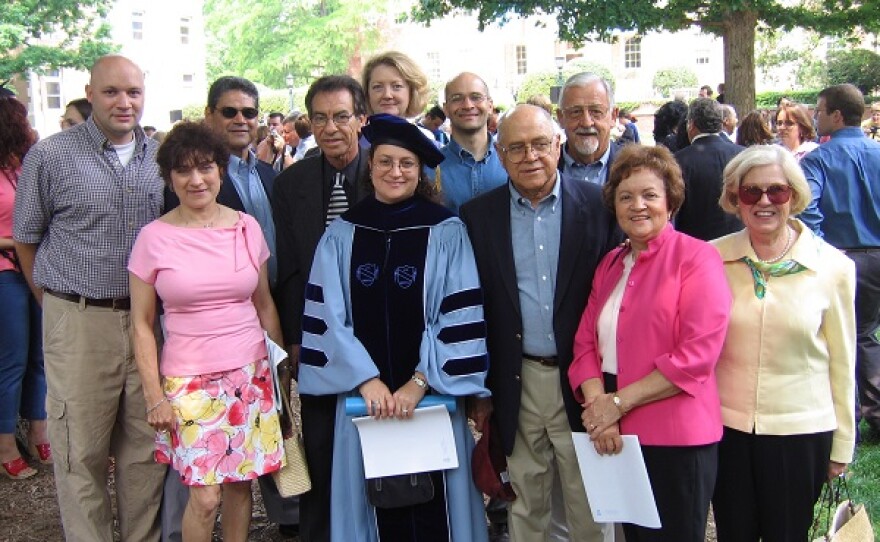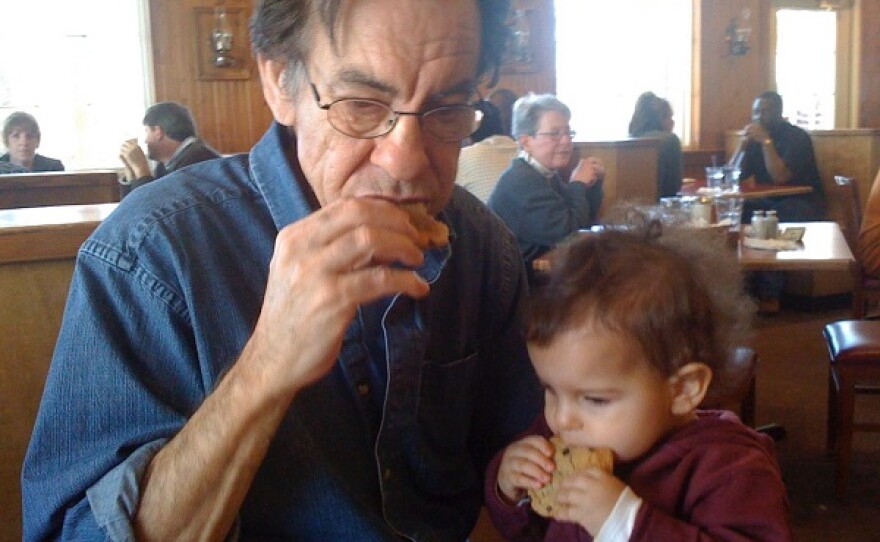Malinda Maynor Lowery is a Lumbee Indian whose family goes back more than 10 generations in Robeson County. Lowery was born in Lumberton, N.C. but raised in Durham, where from an early age, she often fielded the question, “what are you?” Although she grew up in a family with a strong sense of Native identity, this question stayed with her much of her life, and eventually became the subject of much of her academic and documentary work.
Lowery earned a masters in documentary film from Stanford University and worked on three films exploring questions about what constitutes a so-called “real Indian,” and who gets to decide.
She went on to earn a PhD in History from UNC-Chapel Hill, and came back to work there as a faculty member in 2009. In her tenure at UNC, she has continued to explore Lumbee history and Native identity, published the book “Lumbee Indians in the Jim Crow South,” (UNC Press/2010) and directed the Southern Oral History Program. Host Frank Stasio talks with Malinda Maynor Lowery about her family history, documentary work, and being Lumbee in North Carolina.
Interview Highlights:
On her long family history in Robeson County, North Carolina
When we think about our family history, we know the names of our ancestors going back about 10 generations or so. And before that, of course, we know that their ancestors were from that area. When I think about family history, it really unfolds right here attached to the land. My parents grew up in that community, were nurtured there, and made a decision to raise their children elsewhere.
On her early perceptions of Native American identity
When I was a kindergartner I remember a little girl at the lunch counter asking me what I was. I told her I was an American Indian--that I was a Lumbee, and she didn’t believe me. So I told her I was born in a teepee, which I knew was perfectly untrue… completely untrue […] even at that young age we all had an understanding of the stereotype of a Native person.
On deciding to study history in college
It occurred to me that the narrative that I knew about U.S. history was very one-sided. And that if I was going to understand anything about the society that I was living in I needed more perspectives [...] I realized that the Lumbee perspective on U.S. history is quite different than the narrative that we’ve come to know. And that exploring that not just for myself, but for other folks who wanted to know more about U.S. history might be a useful way to contribute.
On Standing Rock
The spirit of the water protectors has been to honor the voices of their elders who for thousands of years have been saying [...] humanity needs its connection to the earth and that has to be stewarded actively. If it’s not, then not only does the earth diminish, but we as human beings diminish. It’s not created for us...we are here to take care of it. And the United States has constructed its property values, [and] its legal system around rights rather than responsibilities.
On her late husband Willie French Lowery
I had known who Willie was since I was probably six-years-old. Willie was a legend in the Lumbee community. He was a musician who wrote the album “Proud To Be A Lumbee,” which was our national anthem. He also wrote the music for an outdoor drama called “Strike At The Wind,” which tells an important part of Lumbee history. So as a national treasure it was a privilege and honor to have a relationship with him and have him as a mentor.













